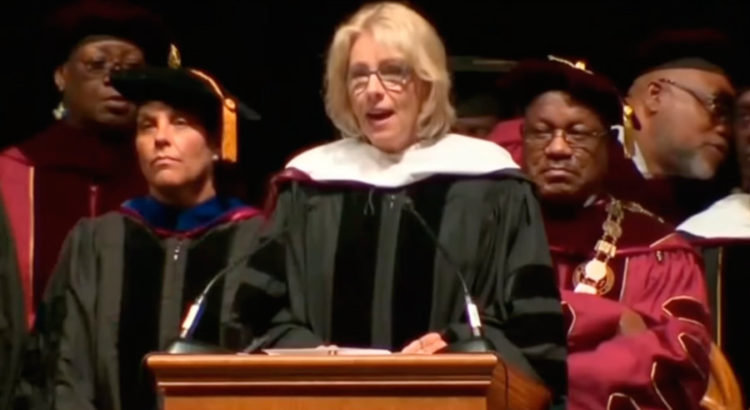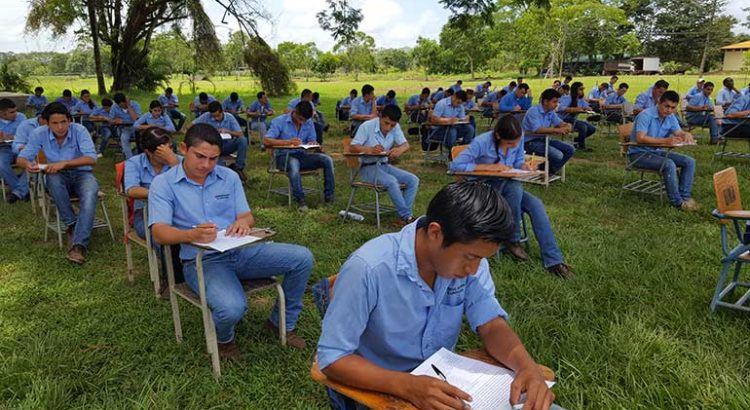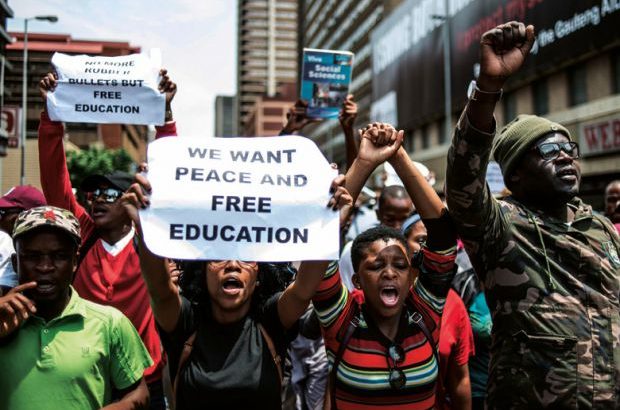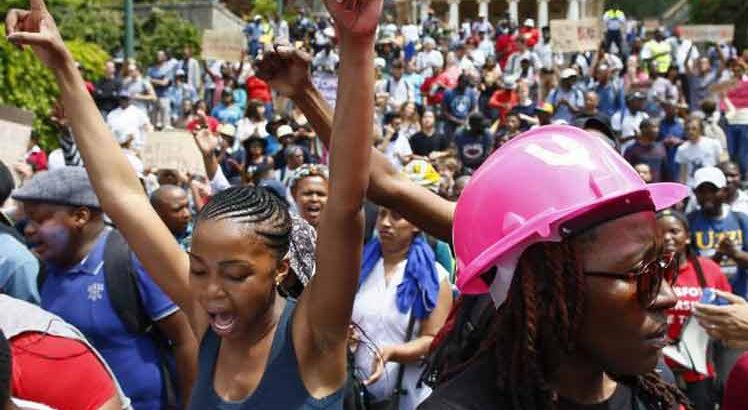Estados Unidos/Mayo de 2017/Fuente: RT
Resumen: Los gritos y los abucheos interrumpieron a la secretaria de Educación Betsy DeVos durante su primer discurso oficial, con un estudiante escoltado fuera de la ceremonia por la seguridad. Muchos en la universidad Bethune-Cookman históricamente negra simplemente le dieron la espalda.DeVos y cientos de graduados que llegaron al Ocean Center en Daytona Beach, Florida, el miércoles fueron recibidos por docenas de manifestantes afuera y penetraron dentro también. A pesar de algunos aplausos de los líderes estudiantiles y de la facultad en las filas delanteras, los hecklers abrumaron partes de la dirección de DeVos, forzándola a levantar su voz para ser oída. La administración de Trump ha estado llegando a universidades históricamente negras mientras intentan construir apoyo para un gran impulso a la reforma de la elección escolar, pero muchos en B-CU vieron a DeVos con desinterés en su escuela, y aprovechando una oportunidad para fotografiarse.
DeVos and hundreds of graduates arriving at the Ocean Center in Daytona Beach, Florida, on Wednesday were met by dozens of protesters outside and demonstrations permeated inside as well.
Despite some applause from student leaders and faculty in the front rows, the hecklers overwhelmed parts of DeVos’ address, forcing her to raise her voice in order to be heard.
The Trump administration has been reaching out to historically black colleges as it attempts to build support for a major school choice reform push, but many at B-CU saw DeVos as taking no interest in their school, and rather taking advantage of a photo opportunity.
Anger towards DeVos is about more than her being an extension of President Donald Trump, however. In February, she called historically black colleges and universities “pioneers” of “school choice,” and while she also talked about historical systemic racism denying blacks education, her widely quoted remarks were taken by some as ignorant or racist.
“She made racist comments about HBCUs, she doesn’t know anything about us, and she has the nerve to come down here and speak to us,” graduate Donjele Simpson told the Washington Post.
Bethune-Cookman University had been on edge for days, with multiple petitions opposing DeVos’ visit garnering thousands of signatures.
Not only did some faculty and alumni demand her address be canceled, but so did a national teachers’ union. The Florida NAACP even called for university President Edison Jackson to resign.
Students began booing even before DeVos took the stage, as B-CU President Jackson welcomed longtime Trump advisor Omarosa Manigault. Jackson stopped his introduction and told those booing, “You don’t know her. You don’t know her story,” the Washington Post reported.
When it came time for DeVos to speak, about half of the 380 graduates stood and turned their backs on her, according to the Post.
DeVos cited the university founder Mary McLeod Bethune and the school motto, “Enter to learn, depart to serve,” but interruptions from the crowd did not cease.
Not all resented DeVos for showing up, however. Jacari Harris, a junior and former student body president, told the Washington Post that the education secretary was “awesome.”
“I’m so glad she’s here,” Harris said. “She’s very transparent, she has a listening ear. We told her about some of the issues we are facing, about students who are single parents, or come from single-parent families, even students who are homeless, and she agreed that we need to find a way to address all of this. She knows the need. It was a great dialogue.”
Fuente: https://www.rt.com/usa/387924-betsy-devos-commencement-boos-black-university/















 Users Today : 71
Users Today : 71 Total Users : 35460202
Total Users : 35460202 Views Today : 100
Views Today : 100 Total views : 3418883
Total views : 3418883